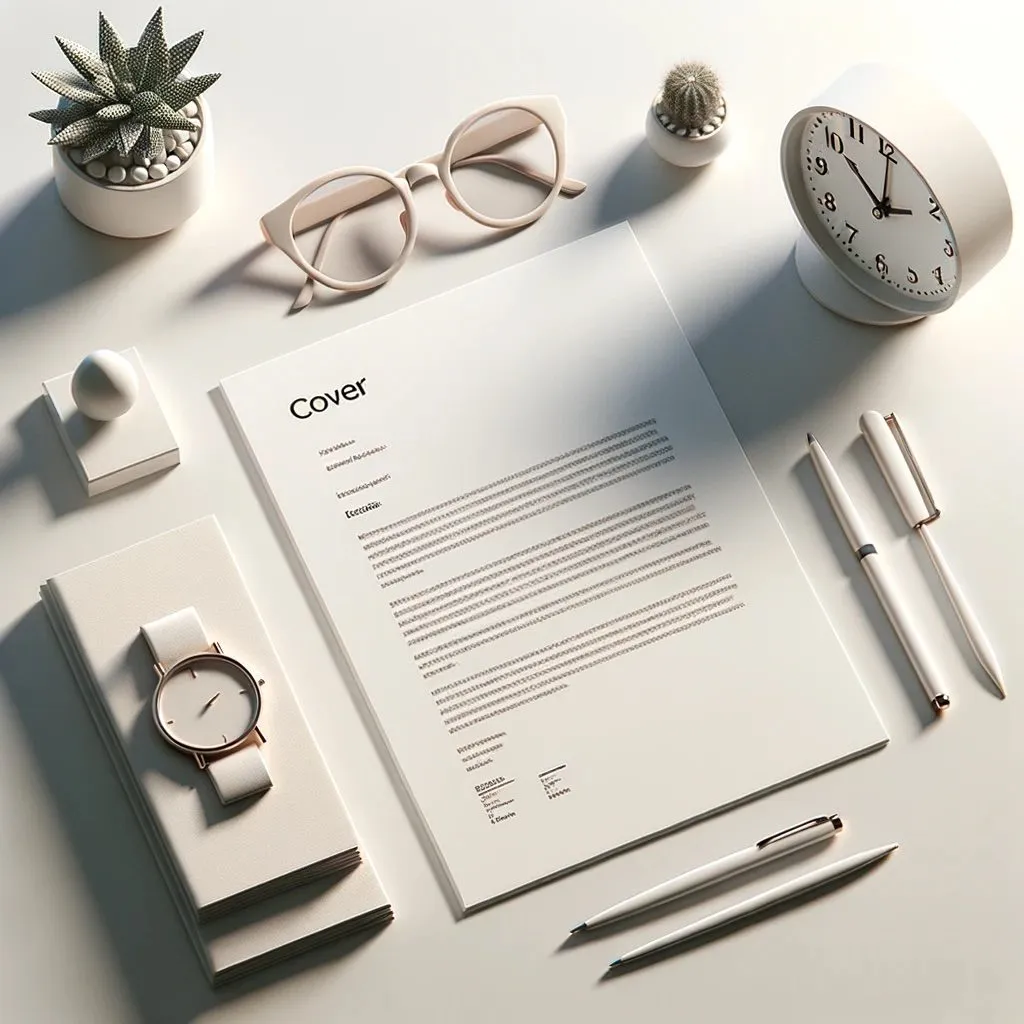Why a Cover Letter Matters for Writers
As a writer, your cover letter is your first opportunity to make a strong impression. It’s a crucial tool in your job application arsenal, acting as a personal introduction that goes beyond the dry facts of your resume. A well-crafted cover letter demonstrates your communication skills, enthusiasm, and understanding of the specific role you’re applying for. It’s where you get to tell a story about yourself, highlighting your relevant skills and experiences in a way that resonates with the hiring manager. In a competitive field, a compelling cover letter can be the difference between getting an interview and being overlooked. Therefore, taking the time to create a polished and persuasive letter is a worthwhile investment in your career.
Understanding the Purpose of a Cover Letter
The primary purpose of a cover letter is to introduce you and your qualifications in a way that piques the interest of the hiring manager. It’s a chance to explain why you’re the perfect fit for the specific role and company. Unlike a resume, which provides a summary of your professional history, a cover letter allows you to provide context, share your passion for writing, and connect your skills to the job requirements. It allows you to show, not just tell, your abilities by providing examples of your work, demonstrating your writing style, and showcasing your personality. Use it to highlight what makes you unique and why the company should consider you.
Highlighting Relevant Skills and Experience
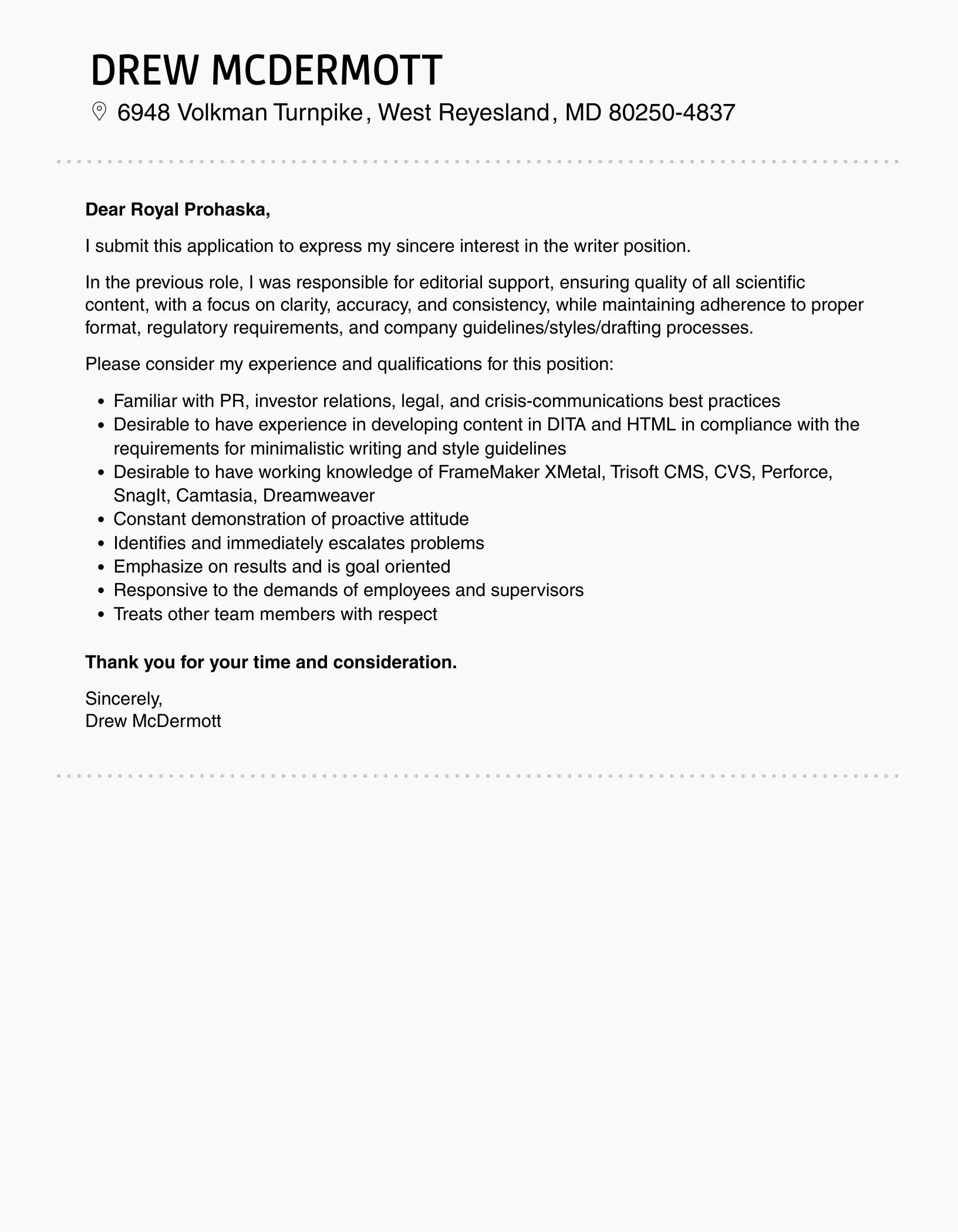
Your cover letter is an opportunity to connect your skills and experiences to the specific needs of the job. Instead of simply listing your qualifications, explain how your past experiences have prepared you for this role. Focus on the skills that align with the job description, such as your ability to write compelling content, your experience with SEO, or your knowledge of a specific industry. Provide concrete examples of how you’ve used these skills to achieve results in the past. This might include details about successful projects, the impact of your writing on previous employers, or any awards or recognition you’ve received. Tailor your examples to each application to showcase the most relevant experience.
Key Components of a Writer Cover Letter
A well-structured cover letter has several key components. Each section plays a vital role in presenting a professional and compelling case for your candidacy. From the initial greeting to the final call to action, every part of the letter should be carefully crafted to engage the reader and highlight your suitability for the position. Understanding the purpose and content of each section is crucial for creating a cover letter that effectively showcases your skills and experience. It’s not just about what you say, but how you say it. Using a clear, concise, and engaging writing style is key to capturing the hiring manager’s attention.
Contact Information and Salutation
Begin your cover letter with your contact information, including your name, phone number, email address, and possibly a link to your online portfolio or website. Then, address the letter to the hiring manager by name whenever possible. Researching the name of the hiring manager shows initiative and attention to detail. If you can’t find a specific name, use a professional greeting like “Dear Hiring Manager” or “Dear [Company Name] Team.” Avoid generic greetings like “To Whom It May Concern,” as they can make your letter seem impersonal. Make sure your contact information is easy to read and up-to-date to ensure the hiring manager can easily reach you.
Crafting a Compelling Opening
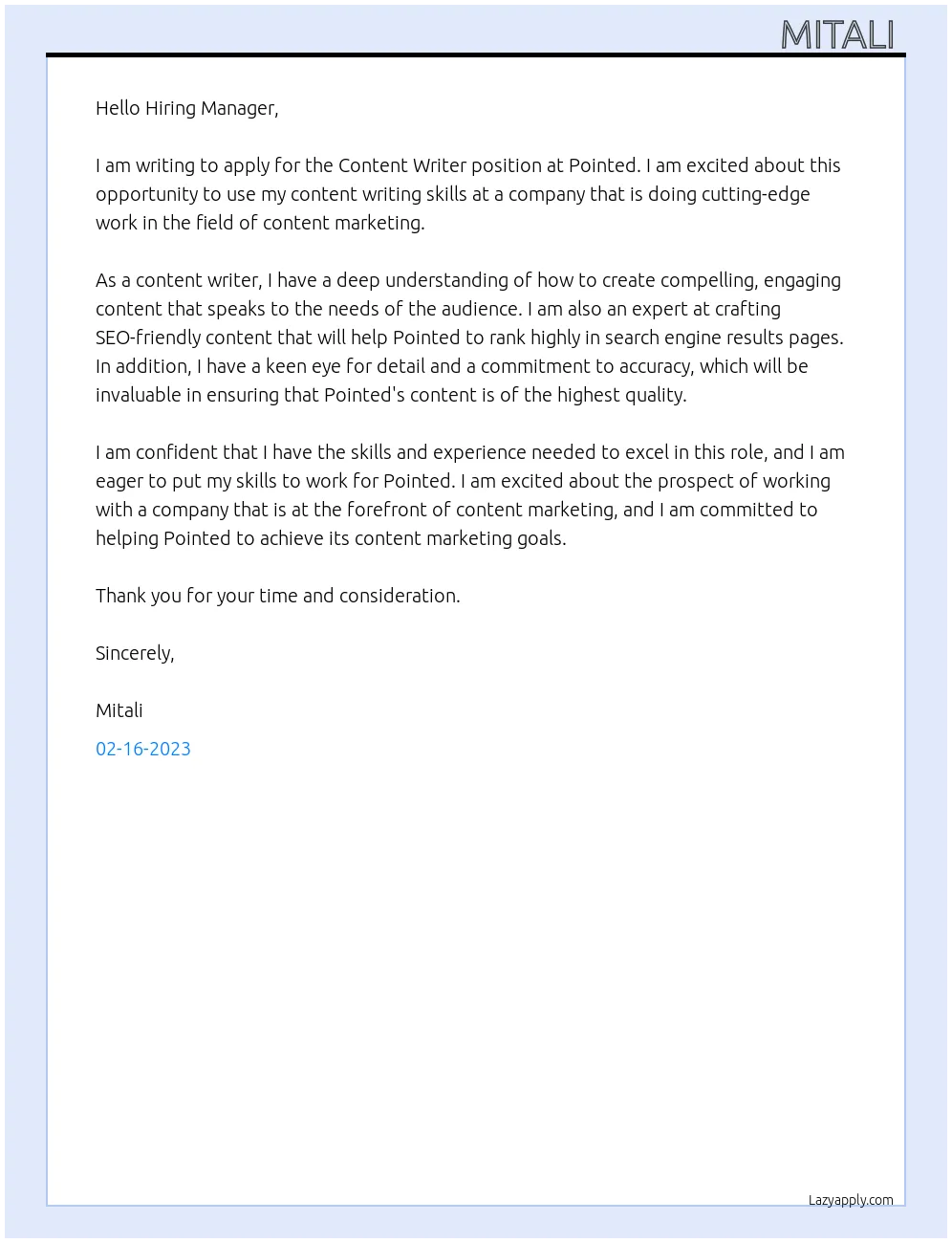
Your opening paragraph is your first chance to grab the reader’s attention. Start with a strong hook that immediately captures their interest. You can achieve this by mentioning the position you’re applying for, stating where you found the job posting, or expressing your enthusiasm for the company. Briefly highlight your key qualifications or a specific achievement that aligns with the job requirements. Make sure the opening is concise and engaging. It should clearly state your purpose for writing and set the tone for the rest of the letter. Avoid generic opening lines, and instead, make a personalized statement that demonstrates your understanding of the role and the company’s needs.
Showcasing Writing Skills
As a writer, your cover letter is a demonstration of your writing skills. Showcase your ability to write clearly, concisely, and persuasively. Pay close attention to grammar, spelling, and punctuation. Use a professional and engaging tone. Vary your sentence structure and word choice to keep the reader interested. Highlight your writing style and how it aligns with the company’s brand voice. If possible, include a brief excerpt from your portfolio or a link to your online work. Show, don’t just tell, your ability to write effectively by demonstrating your writing prowess in the letter itself.
Quantifying Achievements and Results
Whenever possible, quantify your achievements and results. Use numbers and data to demonstrate the impact of your work. For example, instead of saying “I improved website traffic,” say “I increased website traffic by 30% in six months.” Provide specific examples of how your writing has helped previous employers or clients achieve their goals. This could include increased sales, improved customer engagement, or positive media coverage. Quantifiable achievements provide concrete evidence of your abilities and make your cover letter more persuasive. They show that you’re not only skilled but also results-oriented.
Demonstrating Your Understanding of the Role
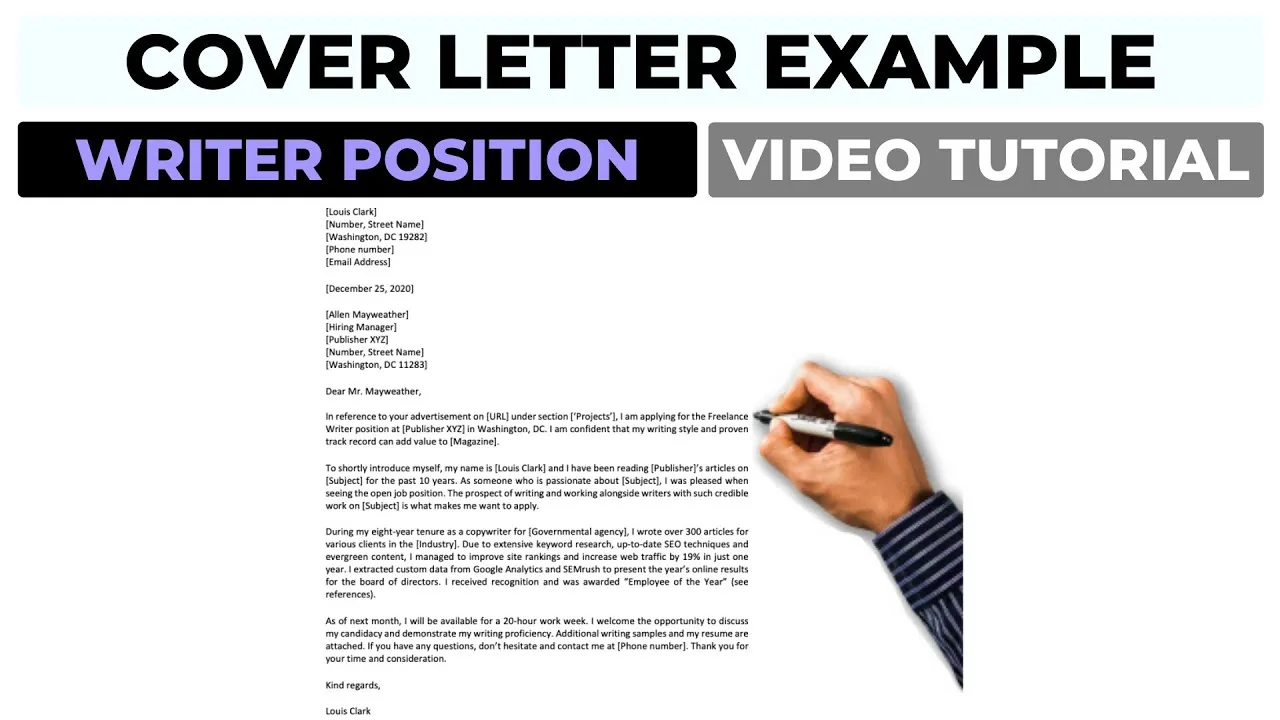
Show the hiring manager that you understand the job requirements and the company’s needs. Review the job description carefully and tailor your cover letter to address the specific skills and experiences they’re seeking. Explain why you’re interested in the role and how your qualifications align with the company’s mission and values. Demonstrate your research by mentioning specific projects, initiatives, or products that resonate with you. Show that you’ve taken the time to learn about the company and the role, and that you’re genuinely interested in contributing to their success. This personalized approach demonstrates initiative and makes your application stand out.
Closing the Cover Letter Effectively
End your cover letter with a strong call to action. Express your interest in an interview and thank the hiring manager for their time and consideration. Reiterate your enthusiasm for the role and the company. Make it easy for them to contact you by including your phone number and email address again. Avoid generic closing statements. Instead, express your eagerness to discuss your qualifications further. A well-crafted closing leaves a lasting positive impression and increases your chances of moving forward in the application process.
Tailoring Your Cover Letter to the Job
Each job application requires a unique cover letter. Never use a generic cover letter for every position. Take the time to tailor your letter to the specific requirements of each job. This demonstrates your attention to detail and your genuine interest in the role. Customize your letter based on the company’s culture, the job description, and the hiring manager’s preferences. Research the company and the role thoroughly before you begin writing. The more personalized your cover letter, the more likely it is to resonate with the hiring manager.
Researching the Company and Job Requirements
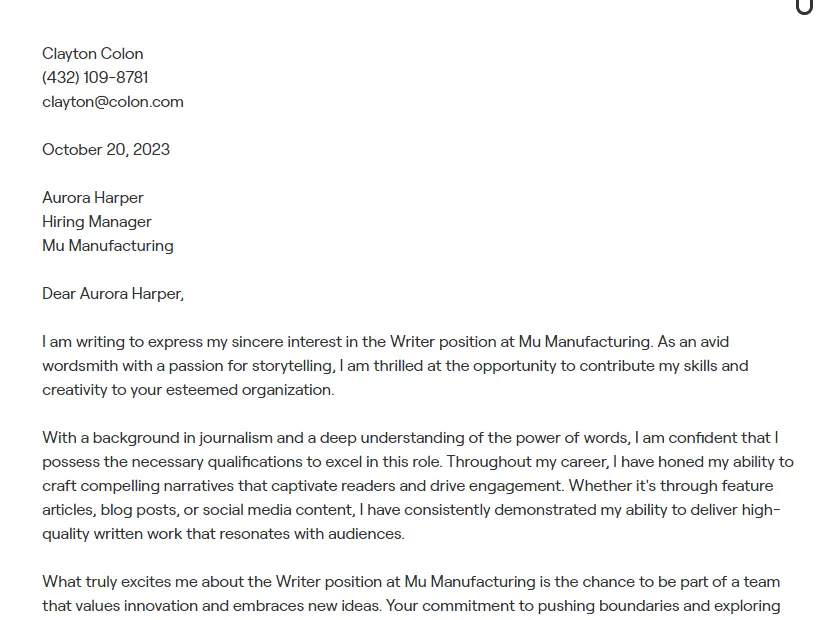
Before you start writing, research the company and the job requirements. Visit the company’s website, read their mission statement, and learn about their products or services. Understand the specific skills and experiences they’re seeking in the job description. Identify the key responsibilities and tailor your cover letter to address these. Understanding the company’s values and the role’s demands allows you to create a compelling cover letter that showcases your qualifications in the most relevant and persuasive way. This preparation is crucial for making a strong impression and demonstrating your genuine interest in the opportunity.
Customizing Your Letter for Each Application
Once you’ve researched the company and job requirements, customize your cover letter to align with their needs. Highlight the skills and experiences that are most relevant to the role. Use keywords from the job description throughout your letter. Provide specific examples of your accomplishments that demonstrate your ability to perform the required tasks. Tailor your writing style to match the company’s brand voice. Personalize your letter by mentioning specific projects or initiatives that align with the company’s goals. Customizing your cover letter for each application is an essential step in demonstrating your genuine interest and increasing your chances of getting noticed.
Formatting and Design for Impact
The formatting and design of your cover letter can significantly impact its readability and overall impression. A well-formatted letter is easy to read, professional-looking, and highlights your key qualifications effectively. Pay attention to font choice, margins, spacing, and overall layout to create a visually appealing document that complements your writing skills. A clean and organized cover letter shows that you care about details and present yourself in the best possible light. It makes a strong first impression and reinforces the quality of your content.
Choosing the Right Font and Formatting
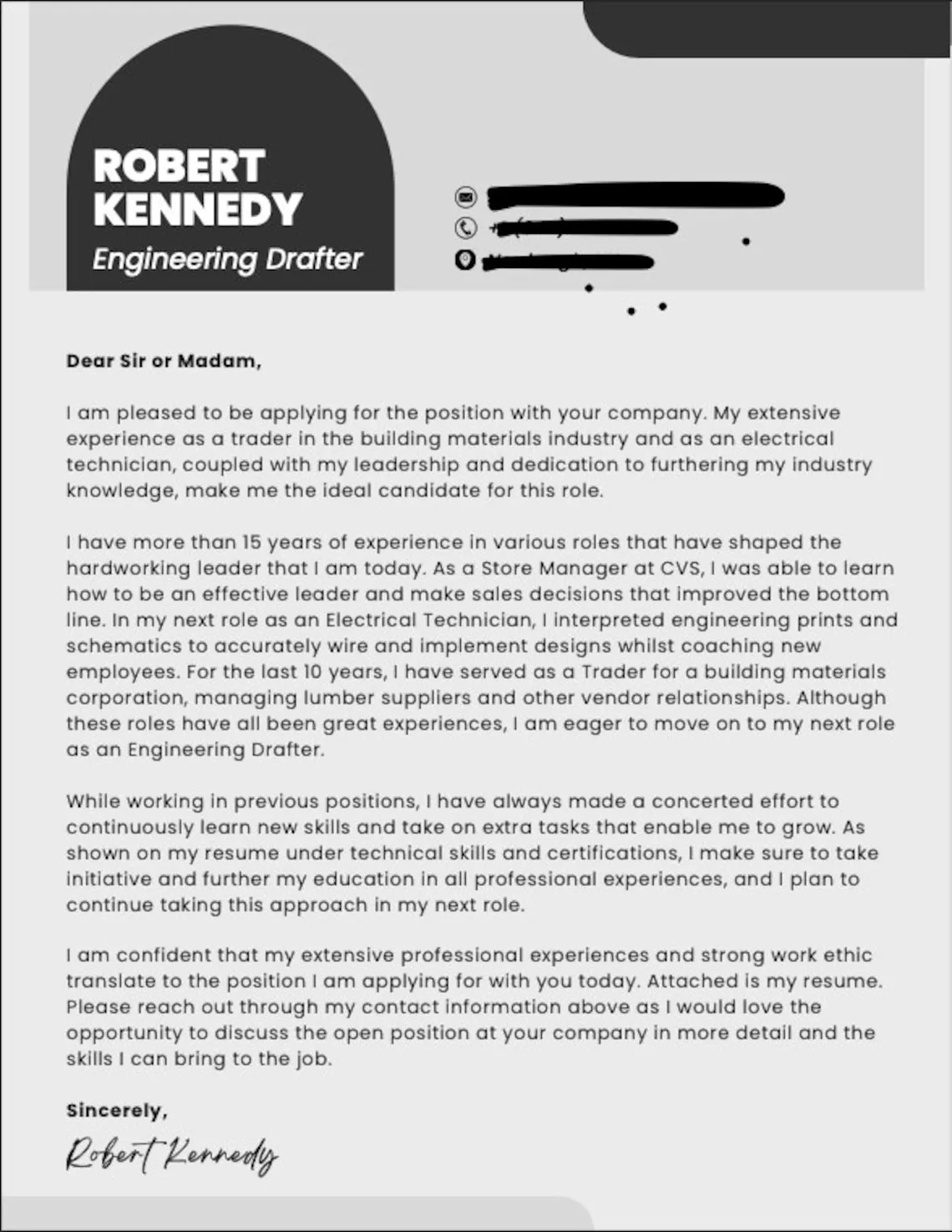
Select a professional and easy-to-read font, such as Arial, Times New Roman, or Calibri. Use a font size between 10 and 12 points. Maintain consistent formatting throughout your letter, including margins, spacing, and alignment. Use single spacing within paragraphs and double spacing between paragraphs. Use bullet points to highlight key accomplishments or skills. Ensure your letter is visually balanced and free of excessive formatting. A well-formatted cover letter is inviting to read and enhances the overall presentation of your skills and experience.
Proofreading and Editing
Proofread and edit your cover letter meticulously. Check for grammar, spelling, and punctuation errors. Ensure your writing is clear, concise, and free of typos. Have a friend or colleague review your letter for feedback. Typos and grammatical errors can undermine your credibility and make you appear unprofessional. Proofreading is a critical step in ensuring your cover letter reflects your attention to detail and your commitment to producing high-quality work. Take the time to review your letter multiple times. A polished cover letter can significantly improve your chances of getting an interview.
Examples of Effective Writer Cover Letters
Reviewing examples of effective cover letters can help you understand how to showcase your skills and experience. Analyze different formats, writing styles, and approaches to find inspiration and tailor your letter. Pay attention to how other writers highlight their accomplishments, demonstrate their skills, and address specific job requirements. Use these examples as a guide to create your cover letter, ensuring that it’s personalized, compelling, and tailored to the specific role and company. Studying successful examples can give you valuable insights and help you create a cover letter that stands out.
Example 1 Focus on Specific Projects
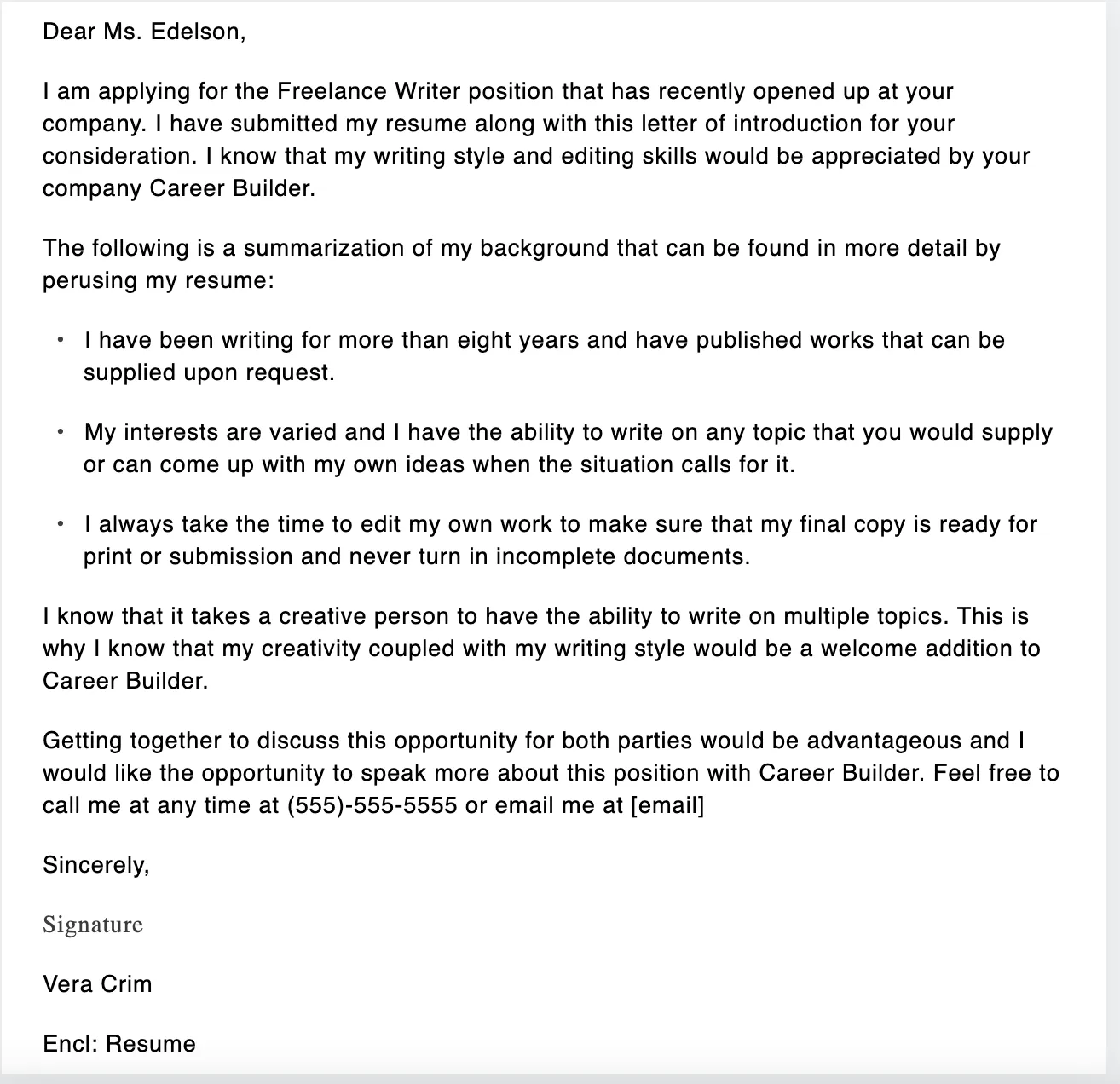
In this example, the writer highlights their experience on specific projects, such as content creation for a particular website or writing articles for a specific publication. The writer quantifies their achievements, demonstrating how their work helped the company achieve its goals. This approach is effective for writers with a strong portfolio of work, allowing them to showcase their diverse skill set. Highlighting specific project results provides concrete evidence of the writer’s abilities. This approach gives the hiring manager a clear understanding of the writer’s practical abilities and past performance.
Example 2 Showcasing Versatility
This example showcases the writer’s versatility by highlighting their experience in different writing styles, such as creative writing, technical writing, and marketing copy. The writer provides examples of their ability to adapt their writing style to different audiences and purposes. This approach is effective for writers with experience in diverse fields, demonstrating their ability to handle various projects. It shows their ability to fulfill a variety of writing needs. This type of cover letter is valuable for companies looking for a writer who can adapt to multiple different tasks.
Example 3 Highlighting Industry Knowledge
This example emphasizes the writer’s industry knowledge and expertise. The writer showcases their understanding of industry trends, terminology, and best practices. The cover letter can also include specific examples of projects within that sector. This is effective for writers with industry-specific experience or expertise, highlighting their ability to provide immediate value. This approach demonstrates that the writer understands the needs of the company. It shows they can begin contributing immediately.
